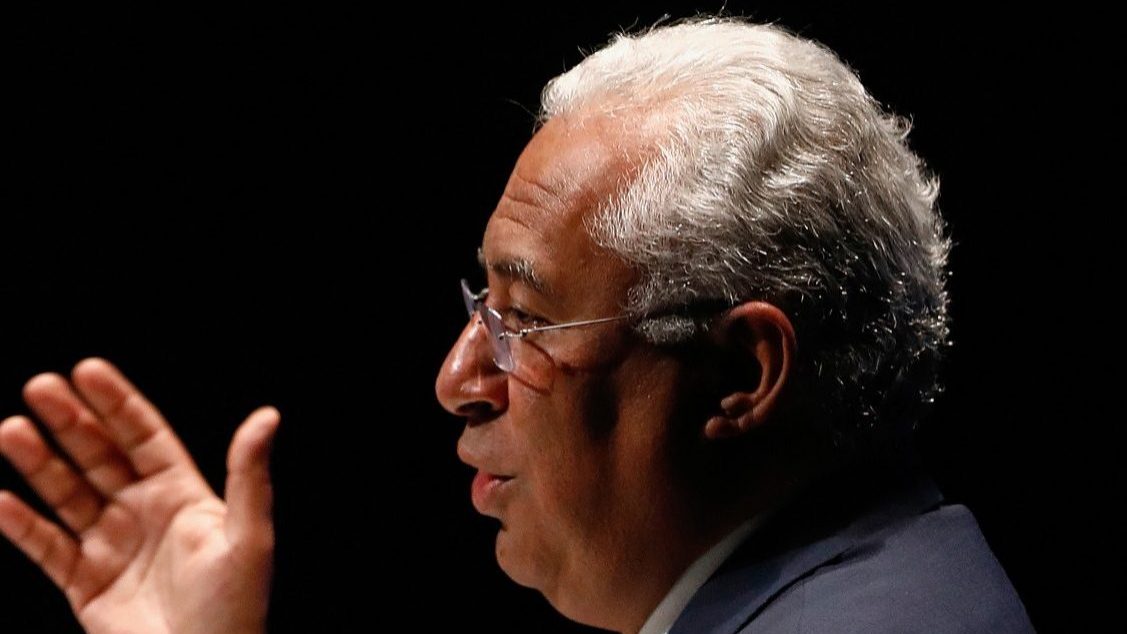Portugal approves 30 measures to help prevent spread of Covid-19
The Government has approved a large number of measures due to the coronavirus pandemic, including the suspension of face-to-face classes in schools at all levels of education.
Portugal’s government has approved a range of measures due to the Covid-19 pandemic, including the suspension of face-to-face classes in schools at all levels of education as of Monday, the prime minister, António Costa, announced in a statement to the country on Thursday night.
Here is the list of the 30 measures announced:
Health:
1. Exceptional regulations in the area of human resources:
(i) suspension of limits on overtime work;
(ii) simplification of hiring of workers;
(iii) worker mobility;
(iv) hiring of retired doctors without being subject to age limits.
2. Preventive regulations for health sector professionals directly involved in diagnosis and specialised laboratory response.
3. Exceptional regulations for the acquisition of services by entities under and departments the Ministry of Health.
4. Exceptional regulations for the composition of medical boards for the evaluation of disabilities of people with disabilities.
Education:
5. Educational establishments (schools, universities, day centers, youth clubs):
– suspension of all face-to-face school activities (teaching and non-teaching) from Monday and for a period of two weeks;
– re-evaluation on April 9th for the third school term.
Social services:
6. Care homes:
Suspension of visits to care homes nationwide .
Establishments:
7. Restaurants and bars:
Reduction of maximum capacity by 1/3.
8. Nightclubs and similar:
Closed.
9. Shopping centres, supermarkets, gymnasiums and government offices dealing with the public:
Limitations on numbers to ensure the possibility of maintaining social distance.
Workers:
10. Granting of authorised absence for workers who have to stay at home with their children aged up to 12 due to the suspension of face-to-face school activities (and who are unable to work from home).
Exceptional financial support to above-mentioned employees, amounting to 66% of basic pay (33% paid by the employer, 33% by Social Security).
Exceptional financial support to above-mentioned self-employed workers, amounting to 1/3 of average remuneration.
11. Extraordinary support for the reduction of the economic activity of self-employed workers and deferment of payment of contributions.
12. Creation of an extraordinary support for professional training, equivalent to 50% of the worker’s remuneration up to the limit of the national minimum salary, plus the cost of the training, for the situations of workers without occupation in productive activities for considerable periods.
13. Guarantee of social protection for trainees and trainers in the course of training activities, as well as for beneficiaries occupied in active employment policies who are prevented from attending training activities.
14. Prophylactic isolation for 14 days treated as equivalent to illness for the purpose of social security. The amount of the benefit corresponds to 100% of pay and is not subject to a waiting period.
15. Sickness benefit is not subject to a waiting period (of three and 10 days).
Companies:
16. Credit line of €200 million to support companies’ cashflow.
17. Credit line of €60 million for microenterprises in the tourism sector.
18. Simplified layoff: Extraordinary support for the maintenance of employment contracts in companies whose business is in crisis, amounting to 2/3 of pay, with Social Security paying 70% of this amount, the remainder being borne by the employer.
Training grant from the Institute of Employment and Vocational Training (IEPF).
Institution, where contributions are concerned, of an exceptional and temporary regime of exemption for employers from the payment of contributions to Social Security during the layoff period .
19. Measures to accelerate payments to companies by the public sector.
20. ‘Portugal 2020’ (partnership agreement with European Union on use of EU development funds):
(i) Payment of incentives within 30 days;
(ii) Extension of repayment term of credits granted under the National Strategic Reference Framework or under Portugal 2020;
(iii) Eligibility of expenses incurred from cancellation of international events;
21. Extraordinary financial incentive to underwrite the phase of normalising business activity (up to one minimum wage per employee).
22. Strengthening of the response capacity of IAPMEI (Agency for Competitiveness and Innovation) and Turismo de Portugal (national tourist board) in assisting to mitigate the impact caused by Covid-19.
23. Extension of payment deadlines for tax and other reporting obligations.
Civil protection:
24. Ministry of Internal Administration and Ministry of Health to declare nationwide state of alert, placing civil defence teams and security forces and services on standby.
25. Application of an exceptional regime of release from service for volunteer firefighters called to provide extra assistance in the ambit of Covid-19.
26. Creation of a national reserve of personal protective equipment for medical emergencies, intended for fire departments.
Ports:
27. Prohibition of disembarcation of cruise ship passengers.
Justice:
28. Exceptional regime of suspension of deadlines, justifiable impediment, justification of absences and postponement of proceedings.
Public administration:
29. Exceptional regulations for public procurement, authorisation of expenditure and administrative authorisation in response to the SARS-CoV-2 epidemic.
30. Acceptance of expired documents submitted to public authorities.


